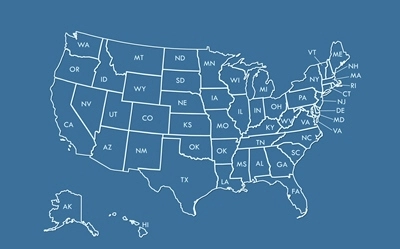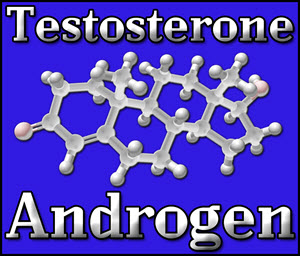Note: Last month, I wrote a blog about foods for women in mid-life. After some -- heated -- commentary about my sexist approach to mid-life, I decided to cover the male aspect.
In 1944, researchers Carl Heller and Gordon Myers identified symptoms of what they termed "male climacteric," another word for menopause; these included loss of libido, depression, inability to concentrate, and sometimes hot flashes. The term "manopause" was later coined to describe the physical and emotional changes many men experience in their late 40s and early 50s. The popular media subsequently linked "manopause" to such 50-something male behaviors as buying a pricey sports car, changing careers, or hooking up with a younger woman.
While the phenomenon of a male menopause is debatable, the physical effect of reduced testosterone is very real. Testosterone is one of the primary male sex hormones, and it's crucial for the development of male reproductive tissues, building muscle, bone formation, normal sexual drive and stamina, and overall well-being. Starting around the age of 35, all men (and women) experience a gradual decline in the amount of testosterone their bodies produce; simultaneously, levels of sex-hormone-binding-globulin (SHBG) increase, further inhibiting testosterone.
By the time most men are in their 50s, testosterone levels are low enough to create a constellation of changes. This phenomenon is called "andropause," sometimes referred to as ADAM ("androgen deficiency in the aging male") or PADAM ("partial androgen deficiency in the aging male"). Some studies suggest that andropause is associated with increased risk of osteoporosis, heart disease, insulin resistance, and possibly Alzheimer's disease. More immediately noticeable effects of lower testosterone include weight gain, loss of libido, diminished mental acuity, reduced muscle bulk, depression, impaired memory and fatigue.
Not surprisingly, these changes dramatically affect a guy's emotional and spiritual well-being."Male menopause is a physical condition with psychological, interpersonal, social, and spiritual dimensions," says Jed Diamond, Ph.D., author of Male Menopause (Sourcebooks, 1998) and The Irritable Male Syndrome (Rodale Books, 2005). "Although this is a potent and multi-dimensional change of life, media often focus on the more superficial aspects of men leaving their older wives for a younger woman or changing careers." In Understanding Men's Passages (Ballantine Books, 1999), author Gail Sheehy says,"If menopause is the silent passage, male menopause is the unmentionable passage ... It strikes at the core of what it is to be a man ... his youthful sexual drive and performance."
Predictably enough, there's some controversy. Some say andropause is real, but "manopause" is a myth perpetuated by authors and companies to promote services and products designed to address the so-called male menopause. While few would argue that men lose testosterone as they age, it's an entirely different situation than menopause, some say, and has little to do with any perceived emotional or spiritual events. Unlike menopause, during which a woman's hormones decline suddenly and precipitously, the loss of testosterone is slow and gradual enough that most men don't notice the corresponding subtle changes. Say the authors of one study, "The extent to which an age-dependent decline in androgen levels leads to health problems that might affect or alter the quality of life remains under debate."
Whether andropause is a man's version of menopause replete with emotional, psychological and spiritual changes, or just a blip on the hormonal screen, may depend on your own circumstances and makeup. But if you're a guy (or you have a guy) who's experiencing some mid-life shakeups, some things you might consider:
Testosterone replacement therapy (also called TRT) can balance and replace testosterone levels and decrease the symptoms of andropause. Unlike estrogen or progesterone therapies, "pharmaceutical, prescription forms of testosterone, especially topical and pellet forms, are for the most part bio-identical," says Jennifer Landa, M.D., chief medical officer of BodyLogicMD in Orlando, Florida. "Even the injectable forms are very similar to bio identical." TRT can have side effects, and should be thoroughly discussed with your health care provider, especially if you're at risk for prostate cancer. Some natural supplements -- Tongkat ali, Tribulus terrestris, zinc, horny goat weed -- have shown promise too in easing symptoms of andropause.
Watch your weight. Testosterone can be converted to estrogen via an enzyme called aromatase. "Some men are genetically predisposed to more aromatase activity," says Landa, "but being heavy also has an impact, since aromatase is present to large degree in fat." And fat begets fat. "Lower testosterone as a result of aging means more muscle converts to fat," she says. "Then, having more fat means more testosterone is converted to estrogen. It's a really negative cycle of events."
Avoid estrogenic compounds. As testosterone levels naturally decrease with age, the ratio of testosterone to estrogen in a man's body falls. When men are exposed to additional sources of estrogen, it further upsets the balance of testosterone to estrogen. Endocrine disruptors and xenoestrogens from plastic food wraps, personal care products and conventionally raised meat and dairy are the most common sources. "These are just as important for men to avoid as for women, especially since they also increase the risk of prostate cancer," says Landa. To minimize exposure, choose organic, grass-fed or pastured animal products, avoid plastic food containers, and buy natural personal care products that are free of parabens and other chemicals.
Recognize the spiritual side. "During this stage, men have to look at all aspects of their lives, including the spiritual," says Diamond. "They may question old patterns and wonder, 'Now that I've done what I was supposed to do, what do I really want to do with my life while I still have time?'Many men have spent a lifetime on a career. Now they want to explore their calling, the deeper more spiritual aspect of what they do." Give yourself ample time and space to recognize these changes -- and be willing to go with deeper callings.
For more by Lisa Turner, click here.
For more on aging gracefully, click here.
Go here to read the rest:
Andropause: When Guys Get 'The Change' | Lisa Turner
Contact Us Today For A Free Consultation

- Andropause Symptoms Treatment - Fixing Male Menopause - Video [Last Updated On: November 25th, 2024] [Originally Added On: July 12th, 2012]
- Andropause: Male Menopause - Video [Last Updated On: November 25th, 2024] [Originally Added On: July 12th, 2012]
- About Andropause - Video [Last Updated On: November 25th, 2024] [Originally Added On: July 12th, 2012]
- MALE MENOPAUSE, MANOPAUSE, OR ANDROPAUSE? - Video [Last Updated On: November 25th, 2024] [Originally Added On: July 12th, 2012]
- Andropause Menopause Symptoms and Solutions Testosterone - Video [Last Updated On: November 25th, 2024] [Originally Added On: July 12th, 2012]
- Treatments for Male Menopause/Andropause/Manopause/Testosterone Deficiency - Video [Last Updated On: December 20th, 2024] [Originally Added On: July 12th, 2012]
- What is testosterone deficiency syndrome/male menopause/.andropause - Video [Last Updated On: November 25th, 2024] [Originally Added On: July 12th, 2012]
- Testosterone Deficiency Syndrome/Andropause - Video [Last Updated On: December 20th, 2024] [Originally Added On: July 12th, 2012]
- John Crisler DO - Andropause [Last Updated On: December 20th, 2024] [Originally Added On: July 12th, 2012]
- Menopause/Andropause [Last Updated On: December 20th, 2024] [Originally Added On: July 12th, 2012]
- Male Andropause: Part 2 - Video [Last Updated On: December 20th, 2024] [Originally Added On: July 12th, 2012]
- Dr. Steven Jepson discusses Andropause - Video [Last Updated On: December 20th, 2024] [Originally Added On: July 12th, 2012]
- Maturitas publishes clinical guide on low-dose vaginal estrogens for vaginal atrophy [Last Updated On: January 10th, 2018] [Originally Added On: September 13th, 2012]
- Testosterone Deficiency in Men - Andropause Symptoms and Treatment - Video [Last Updated On: January 4th, 2025] [Originally Added On: November 2nd, 2012]
- Andropause - The Male Menopause - Video [Last Updated On: January 3rd, 2025] [Originally Added On: November 2nd, 2012]
- SA STGEC ~ Ad Hoc Talk: Andropause (2006) - Video [Last Updated On: January 4th, 2025] [Originally Added On: November 2nd, 2012]
- The Cosmetic Medic Stamford CT - Video [Last Updated On: January 5th, 2025] [Originally Added On: November 2nd, 2012]
- Testosterone Roundtable -- Overview of Low Testosterone (Part 1) - Video [Last Updated On: January 5th, 2025] [Originally Added On: November 2nd, 2012]
- Naturally Increase Testosterone Levels - Video [Last Updated On: February 8th, 2025] [Originally Added On: November 26th, 2012]
- Patients Medical Welcomes Dr. Marcia A. Harris, Holistic Gynecologist and Anti-Aging Physician [Last Updated On: June 7th, 2025] [Originally Added On: December 2nd, 2012]
- ALCAT Pioneer, Roger Deutsch, to Address "Food Induced Inflammation and Aging" at Vienna's Prestigious December ... [Last Updated On: June 8th, 2025] [Originally Added On: December 5th, 2012]
- Andropause: Changes in Aging Men - Video [Last Updated On: February 19th, 2025] [Originally Added On: December 10th, 2012]
- Rhein Test Kit - Avante Medical Center - Video [Last Updated On: February 19th, 2025] [Originally Added On: December 10th, 2012]
- AM Northwest Appearance - Andropause - Video [Last Updated On: February 19th, 2025] [Originally Added On: December 10th, 2012]
- Lessons in Menopause for Men - Video [Last Updated On: December 15th, 2012] [Originally Added On: December 15th, 2012]
- AAG Health Publishes Testosterone and HGH Discussion-Blog [Last Updated On: June 11th, 2025] [Originally Added On: December 26th, 2012]
- Understanding Andropause: Erectile Dysfunction - Part Two - Video [Last Updated On: February 26th, 2013] [Originally Added On: February 26th, 2013]
- Airing March 2 and 3: BBC World News 30-Minute Segment on Andropause/Aging with Dr. Jeff Life, Healthy Aging Expert ... [Last Updated On: February 26th, 2025] [Originally Added On: February 28th, 2013]
- Andropause - Great Android App For Men - Vigor - Stamina - Video [Last Updated On: February 28th, 2013] [Originally Added On: February 28th, 2013]
- Eastday-Survey finds 1m locals suffer from andropause [Last Updated On: August 23rd, 2025] [Originally Added On: May 22nd, 2013]
- What Is Andropause?Diagnosis,Symptoms,Treatment [Last Updated On: March 11th, 2025] [Originally Added On: July 2nd, 2013]
- Andropause - Video [Last Updated On: July 2nd, 2013] [Originally Added On: July 2nd, 2013]
- Andropause Glossary - Video [Last Updated On: July 2nd, 2013] [Originally Added On: July 2nd, 2013]
- Andropause Symptoms - Video [Last Updated On: July 2nd, 2013] [Originally Added On: July 2nd, 2013]
- Understanding Andropause: Erectile Dysfunction - Part One - Video [Last Updated On: July 2nd, 2013] [Originally Added On: July 2nd, 2013]
- Understanding Andropause - Video [Last Updated On: July 2nd, 2013] [Originally Added On: July 2nd, 2013]
- Andropause video - Video [Last Updated On: July 8th, 2013] [Originally Added On: July 8th, 2013]
- ANDROPAUSE SOLUTION "OSS-TEST" TOP BEST NATURAL TESTOSTERONE BOOSTER - Video [Last Updated On: August 3rd, 2013] [Originally Added On: August 3rd, 2013]
- Natural relief for andropause [Last Updated On: December 2nd, 2017] [Originally Added On: October 10th, 2013]
- Andropause - Causes, Symptoms, Treatment, Diagnosis - Seniors ... [Last Updated On: January 7th, 2018] [Originally Added On: November 3rd, 2013]
- Andropause - Causes, Symptoms, Treatment, Diagnosis - Men's Health ... [Last Updated On: December 31st, 2017] [Originally Added On: November 3rd, 2013]
- Andropause Specialist [Last Updated On: January 21st, 2018] [Originally Added On: November 10th, 2013]
- Understanding Andropause [Last Updated On: October 24th, 2015] [Originally Added On: November 10th, 2013]
- Andropause - Causes, Symptoms, Treatment, Diagnosis - Men's ... [Last Updated On: January 20th, 2018] [Originally Added On: November 18th, 2013]
- Andropause | Male Menopause | Male Menopause Symptoms | Male ... [Last Updated On: November 25th, 2018] [Originally Added On: November 18th, 2013]
- Symptoms of andropause - Men's health [Last Updated On: November 25th, 2018] [Originally Added On: November 21st, 2013]
- Andropause In Men [Last Updated On: December 9th, 2017] [Originally Added On: November 23rd, 2013]
- Andropause - Male Menopause - Androgen Replacement Therapy [Last Updated On: January 13th, 2018] [Originally Added On: November 25th, 2013]
- Andropause 2013 - Reviewed and Ranked - Independent Reviews on ... [Last Updated On: March 30th, 2025] [Originally Added On: November 25th, 2013]
- Andropause, Facts, Symptoms, Diagnosis, Testosterone Treatment [Last Updated On: January 18th, 2018] [Originally Added On: November 27th, 2013]
- Symptoms of Andropause (Male Menopause): Low Testosterone, Low ... [Last Updated On: December 13th, 2017] [Originally Added On: November 27th, 2013]
- Discovery Health "Andropause: Dealing With Male Menopause" [Last Updated On: December 5th, 2017] [Originally Added On: November 27th, 2013]
- Global Toronto's News at Noon Andropause aka "manopause" - Video [Last Updated On: November 27th, 2013] [Originally Added On: November 27th, 2013]
- San Diego Dermatologist Discusses Male Menopause | Andropause Expert in San Diego - Video [Last Updated On: December 7th, 2017] [Originally Added On: December 9th, 2013]
- The American Academy of Anti-Aging Medicine (A4M) Concludes Largest Event in Anti-Aging, Regenerative and Aesthetic ... [Last Updated On: April 5th, 2025] [Originally Added On: December 19th, 2013]
- Andropause Symptoms - Male Menopause Symptoms [Last Updated On: December 16th, 2017] [Originally Added On: December 27th, 2013]
- What Is Andropause? | eHow - eHow | How to Videos, Articles ... [Last Updated On: January 20th, 2018] [Originally Added On: December 30th, 2013]
- Drug companies are pushing that new-man feeling Low T, high stakes [Last Updated On: April 10th, 2025] [Originally Added On: January 16th, 2014]
- Andropause - Male Menopause - Androgen Replacement Therapy ... [Last Updated On: December 24th, 2017] [Originally Added On: January 16th, 2014]
- Male Menopause Symptoms, Treatments, Causes, and More [Last Updated On: January 15th, 2018] [Originally Added On: January 16th, 2014]
- Can you reverse the aging process? [Last Updated On: April 11th, 2025] [Originally Added On: January 17th, 2014]
- Yourwellness Magazine Explores Male Menopause [Last Updated On: April 12th, 2025] [Originally Added On: January 19th, 2014]
- Antiaging Medicine and Research, India Will Highlight “Hormones and Aging in Medical Practice” During 5th Indomedicon ... [Last Updated On: April 14th, 2025] [Originally Added On: January 24th, 2014]
- Care needed when controlling cholesterol [Last Updated On: October 23rd, 2020] [Originally Added On: January 27th, 2014]
- Symptoms of Andropause (Male Menopause): Low Testosterone ... [Last Updated On: October 11th, 2020] [Originally Added On: January 30th, 2014]
- Antiaging Medicine and Research, India Will Highlight Hormones and Aging in Medical Practice During 5th Indomedicon ... [Last Updated On: October 24th, 2020] [Originally Added On: January 31st, 2014]
- The truth about low testosterone and 'male menopause' [Last Updated On: October 31st, 2020] [Originally Added On: January 31st, 2014]
- Surge or shrink [Last Updated On: November 1st, 2020] [Originally Added On: February 11th, 2014]
- How Does Andropause Affect Men? - Video [Last Updated On: November 10th, 2020] [Originally Added On: February 14th, 2014]
- Andropause | Male Menopause | Male Menopause Symptoms ... [Last Updated On: November 25th, 2018] [Originally Added On: February 15th, 2014]
- NuMale Medical - Low Testosterone -- Andropause - Video [Last Updated On: October 21st, 2020] [Originally Added On: February 21st, 2014]
- Boost Your Sex Drive: Solutions For Impotence, Erectile Dysfunction And Low Libido [Last Updated On: September 18th, 2025] [Originally Added On: February 27th, 2014]
- HowStuffWorks "Andropause: Dealing With Male Menopause" [Last Updated On: October 16th, 2020] [Originally Added On: March 7th, 2014]
- The Truth About Andropause: Male Menopause - Explained by Hormone Expert, Dr. Ken G. Knott, MD - Video [Last Updated On: November 20th, 2020] [Originally Added On: March 7th, 2014]
- What Is Andropause? It's Symptoms In Men & Treatment ... [Last Updated On: November 11th, 2020] [Originally Added On: March 14th, 2014]
- Andropause Low Testosterone A Drug Free Natural Approach UnitedMulticare com - Video [Last Updated On: October 9th, 2020] [Originally Added On: March 15th, 2014]
- Low Testosterone (Andropause). What is it? - Video [Last Updated On: October 30th, 2020] [Originally Added On: March 15th, 2014]
- Male menopause is a reality [Last Updated On: October 13th, 2020] [Originally Added On: March 24th, 2014]
- Anatomy Menopause Andropause - Video [Last Updated On: March 25th, 2014] [Originally Added On: March 25th, 2014]
- Menopause & Andropause - Video [Last Updated On: November 7th, 2020] [Originally Added On: March 30th, 2014]
Word Count: 995




















